For many people, coffee is more than just a drink—it’s a ritual, a moment of peace before the chaos of the day begins. Whether you prefer it black, iced, or with a splash of cream and sugar, coffee provides that much-needed energy boost. However, while your morning cup may wake you up, it could also be taking a toll on your teeth.
Coffee lovers often wonder: Is my daily coffee habit ruining my teeth? The answer isn’t black and white, but coffee does have effects on your oral health that are worth considering. Let’s explore how coffee impacts your teeth, the risks involved, and how you can keep your smile bright without giving up your favorite brew.
How Coffee Affects Your Teeth
While coffee has some health benefits, such as being rich in antioxidants and potentially lowering the risk of certain diseases, it does have drawbacks when it comes to your teeth. Here are the key ways coffee can impact your oral health:
1. Staining & Discoloration
If you’ve ever noticed that your white mug gets stained after drinking coffee, imagine what it’s doing to your teeth! Coffee contains tannins, a type of polyphenol that causes color compounds to stick to the enamel. Over time, this leads to stubborn yellow or brown stains.
People who drink multiple cups a day are more likely to notice discoloration, especially if they don’t brush and floss regularly. While these stains don’t necessarily indicate tooth decay, they can dull your smile and make your teeth appear less healthy.
2. Enamel Erosion
Coffee is naturally acidic, with a pH level around 4.85 to 5.10. Acidic drinks weaken the protective enamel on your teeth, making them more vulnerable to damage, sensitivity, and further staining.
Enamel erosion can’t be reversed once it occurs, but you can take steps to slow it down and protect your teeth from further damage.
3. Dry Mouth & Bad Breath
Do you ever notice that your mouth feels dry after drinking coffee? That’s because caffeine reduces saliva production. Saliva plays a critical role in neutralizing acids and washing away bacteria, so when your mouth is dry, bacteria thrive. This can lead to bad breath (also known as “coffee breath”) and increase your risk of cavities and gum disease.
4. Sugar & Cream Make It Worse
Many coffee drinkers add sugar, flavored syrups, or creamers to enhance the taste. While delicious, these additives can contribute to tooth decay by feeding harmful bacteria in your mouth. Sugary coffee drinks—like flavored lattes, frappuccinos, and caramel macchiatos—are especially problematic, as they expose your teeth to sugar for an extended period.
How to Protect Your Teeth Without Giving Up Coffee
If you’re a coffee lover, don’t worry—you don’t have to quit! Here are some simple strategies to minimize coffee’s negative effects on your teeth while still enjoying your favorite drink:
1. Drink Through a Straw
Using a straw helps direct the coffee past your front teeth, reducing the amount of direct contact and minimizing staining.
2. Rinse Your Mouth with Water
After drinking coffee, swish water around in your mouth to help wash away acids and pigments before they settle on your teeth.
3. Wait Before Brushing
It might seem like a good idea to brush your teeth immediately after drinking coffee, but this can actually be harmful. Coffee temporarily softens enamel due to its acidity, and brushing too soon can wear it down. Instead, wait at least 30 minutes before brushing to give your enamel time to re-harden.
4. Choose Less Acidic Coffee Options
Lighter roasts tend to be less acidic than darker roasts, and cold brew coffee is typically lower in acidity than hot brewed coffee. If you’re concerned about enamel erosion, switching to a lower-acid coffee could help.
5. Cut Back on Sugar & Cream
Try drinking your coffee black or with minimal added sugar. If you prefer some sweetness, opt for sugar substitutes or a small splash of milk instead of heavy syrups and flavored creamers.
6. Maintain a Strong Oral Hygiene Routine
Brushing twice a day with fluoride toothpaste, flossing daily, and using mouthwash can help keep stains and plaque buildup at bay. You can also incorporate whitening toothpaste to help lift surface stains.
7. Get Professional Cleanings & Whitening Treatments
Regular dental checkups and cleanings can remove stubborn stains that brushing alone won’t fix. If coffee stains are a major concern, professional teeth whitening treatments can restore brightness and remove deep-set discoloration.
Should You Quit Coffee for the Sake of Your Teeth?
The short answer: Not necessarily! While coffee does have some downsides, being mindful of your oral hygiene and making small changes to your coffee-drinking habits can significantly reduce its impact on your teeth.
By rinsing with water, drinking through a straw, limiting sugar, and maintaining regular dental checkups, you can enjoy your daily coffee without compromising your smile.
Coffee might be a staple in your morning routine, but it doesn’t have to be a disaster for your teeth. Understanding the risks and taking preventive measures can help you maintain a bright, healthy smile.
If you’re worried about coffee stains or enamel erosion, schedule a consultation with your dentist. We’re here to help you keep your teeth healthy—while still letting you enjoy that morning cup of coffee!
Would you like to learn more about protecting your smile? Contact us today to book an appointment.

